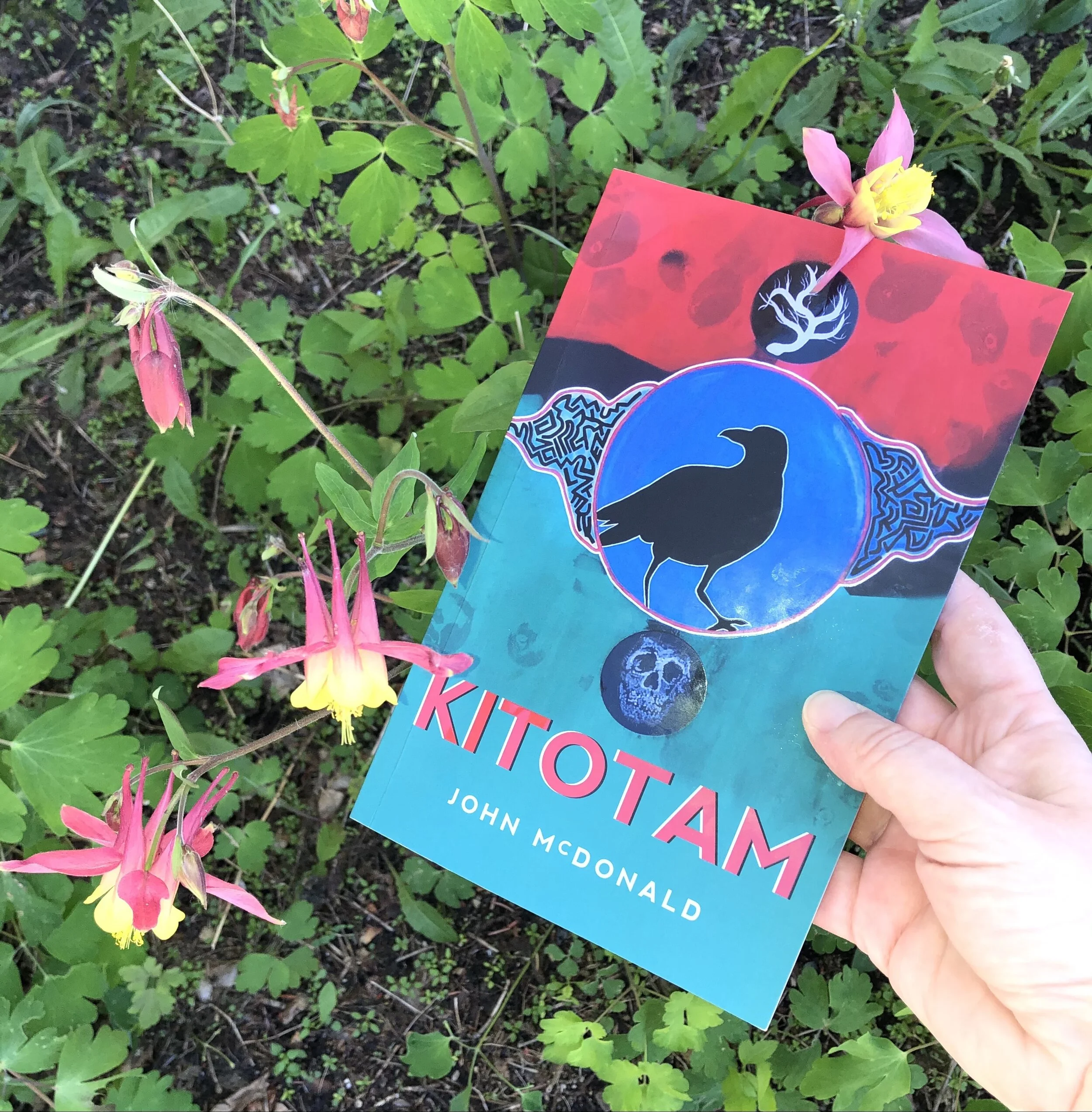Book Review: Kitotam by John McDonald
In his latest book of poetry entitled Kitotam: He Speaks to It, spoken word and multi-disciplinary artist John McDonald recounts what it was like growing up in northern Saskatchewan during the 1980s and ‘90s. It is a book steeped in memory about the alienation of adolescence and of finding one’s place.
Part I focuses on McDonald’s youth and teen years. Here, he expresses what it was like to be formed by a particular place:
Scrounged change buying Slushes and fed into arcade games Bottles picked for deposit returns Punches thrown in petty scuffles Mountain ash berries and dog shit squished into the soles of our shoes Those days in Prince Albert (9)
I didn’t grow up in Prince Albert, but I did live there. My family moved to the East Flat in the early ‘90s. I was thirteen and we stayed until another move took us to Alberta three and half years later. I learned to drive in PA. Had my first boyfriend in PA. My first job was at the Robin’s Donuts on the West Hill. Reading Kitotam was a kind of homecoming. I recognized references to Red River Park and to the local movie theatre where I saw Jurassic Park (and was awed), where I saw Cape Fear with Robert DeNiro (and never fully recovered). I remembered, with clarity, the rotten-egg smell of the pulp mill in my backyard, watching the Aurora Borealis on a clear night, canoeing past abandoned grad cars along the banks of the North Saskatchewan river. As I read, I began to imagine the poet and I as friends, meeting at the food court in The Gateway Mall downtown, singing along to “Insane in the Brain” or “Achy, Breaky Heart.” Poem after poem, I recognized myself in McDonald’s verse: of being young, of being with friends, the overwhelming sense of despair that is teenaged angst.
As I read further, however, a crack formed; a severing of my experience from his. I am of European settler descent and the beneficiary of years of colonial privilege. No one checked me twice when I went into the corner Mac’s to buy a Slushie. No one pulled me over while cruising up and down River Street with my friends. McDonald shares a different experience. He writes about what it was like for a Nehiyawak-Metis boy in Northern Saskatchewan:
We were street kids, Disposable urchins not worth the time Immature hooligan bastards with no respect…
…………………………..
We were Indians Decimated and ignorant races not worth the welfare cheques Drunken stereotypes who should go back to the Rez… (27)
Many of McDonald’s poems are startling and often devastating. He provides a glimpse into the experience of racism, of what it’s like to be “…The Outsiders / The reminders of colonization…” (34). His words are raw and, at times, painful to read. But they are also necessary.
In Part II, the tone begins to change. The poet is no longer a kid, but a young man experiencing a world outside of PA. He speaks of literary and musical influences—how they shape and form the person he is becoming. He acknowledges friends, lovers, mentors—how each leave their indelible mark. Perspectives grow. Wounds begin to heal. The life of the Storyteller unfolds.
Injustice remains. It is stitched across every page. A particularly tender poem dedicated to Tristen Durocher—an activist who walked over 600 kilometers across Saskatchewan and embarked on a hunger strike in front of the Legislative Building during the summer of 2020 to protest the provincial government’s inaction regarding a suicide prevention bill—brings the collection full-circle. In it the poet reminds the reader how fragile our young people are, how much pain our teenagers experience. Nevertheless, McDonald is deliberate about his message:
We are the warriors…
……………
We speak and we fight For those Awiyak eka kohpehtakosowenit Voiceless (85)
McDonald’s collection articulates the nostalgia, and the trauma, of growing up in Saskatchewan’s North. But it also captures the strength and spirit that pulled the poet through. His poems are infinitely accessible, his words heartbreakingly vivid and honest. Kitotam is a powerful read and a highly recommended one.
*Many thanks to Radiant Press for sending me a copy of Kitotam to read and review.
Kitotam by John McDonald Radiant Press, 2021, p.p. 88 ISBN: 9781989274507
